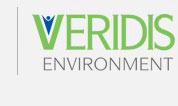Waste Treatment
In a world in which natural resources are becoming scarcer, waste should be seen as an essential raw material.
Veridis’ material recovery facilities are among the most advanced in the world, handling all types of waste. After the separation and sorting process, the materials are sent for reprocessing or directly for reuse. The products serve as quality raw materials for industry and the agricultural sector, and include alternative fuels that reduce greenhouse gas emissions and air pollution.
Veridis is a leader in producing renewable resources in Israel, establishing new criteria in the secondary raw materials market.
Advanced Recycling Solutions
- Waste separation, sorting, packing and returning for reuse
- Producing high quality, recycled raw materials for industrial use
- Producing alternative fuel and alternative raw materials for making energy from household and industrial waste
- Producing compost for agricultural use
Alongside their ecological contribution, our recycling solutions provide customers with proven economic advantages.
Veridis is developing advanced processes for identifying, separating and preparing treated waste materials for industrial reuse.
Compost
Compost exploits nature’s recycling capabilities and makes for a greener environment. Veridis produces over 100,000 tons of quality compost each year.
Compost is produced in a process of controlled biological decomposition of organic waste. Through composting, food, livestock manure, green waste and even paper become a quality fertilizer for agricultural use. Before shredding, the waste undergoes treatment for removing undesirable matter. In order to enable the natural decomposition processes, the biological material is piled in windrows. Every few days, each row is turned and moistened to preserve proper aeration and moisture levels. The production process, which lasts about 12 weeks, is based on scientific know-how and on Veridis’ accrued expertise.
Compost from Household Waste
Veridis operates a plant in Israel specially designed for the production of compost from biodegradable municipal waste. The organic material is separated at Veridis’s advanced MRFs, and is then sent to the compost facility for closely controlled processing. After all unwanted components are removed, composting takes place under strict supervision.
Compost from Livestock Manure
Veridis operates a unique open compost plant for handling livestock manure. Based on advanced know-how, the plant meets high standards of quality and control. Transforming agricultural wastewater into compost solves the problems of odor nuisances and pollution, and prevents overloading wastewater treatment facilities. The compost produced in the plant is of especially high quality. The compost marketed by Veridis meets the highest standards and is in extremely high demand in the agricultural sector.
Veridis’ compost is sorted according to degrees of quality and marketed for various uses in the agricultural sector.
For further information, please contact Mosa Shapso mosa_s@GroupVE.co.il
Waste to Energy
Veridis specializes in effective solutions for designing, building and operating renewable energy plants.
Striving to provide renewable raw materials for the energy sector, we invest a great deal of resources in developing new technologies.
We believe that utilizing waste to generate energy is a central part of any responsible waste management strategy.
Our energy generation solutions eliminate the need for expensive and polluting waste disposal procedures.
Maximum utilization of resources ensures that all of our projects provide customers with substantial economic advantages. For each customer we choose the most appropriate solution: energy from biomass, biogas, utilization of recovered materials and cogeneration.
Veridis enables companies to maximize their profits while protecting the environment.
Biogas
Biogas is an important source for renewable energy. Utilizing biological waste to produce energy reduces greenhouse gas emissions, and makes industries greener.
Landfill Biogas
Biogas is produced from the decomposition of organic matter, naturally or in a controlled environment. In landfills, biogas is produced in an anaerobic fermentation process. It contains methane (CH4) and carbon dioxide (CO2) in varying amounts. As the methane content increases, the quality of the biogas improves and its calorific value rises.
Biogas is a renewable source of energy and an effective alternative to polluting fossil fuels.
Biogas from Anaerobic Digestion
Controlled anaerobic digestion is a means for effective production of biogas from organic waste.
Many companies – especially in the chemicals, food and pharmaceuticals sectors – are interested in exploiting their waste to produce renewable energy, and to lower pollution and costs. Veridis helps them realize this vision by building energy plants based on anaerobic digestion technology. Aside from harnessing biogas for energy production, byproducts of the process are also used to produce biological agricultural fertilizers – an ideal substitute for chemical fertilizers.
Biogas has been found suitable for use in vehicles as an alternative green fuel.
For further information please contact Ilai Livny ilay_l@groupve.co.il
RDF
Veridis is the first to implement RDF technology in Israel.
The technology is turning municipal and non-hazardous industrial and commercial waste into affordable fuel for producing energy through co-incineration. RDF provides an effective alternative to polluting fuels in various energy facilities, including cement plant furnaces and coal-fired power plants.
RDF technology reuses large quantities of waste, and provides a solution for the growing energy demands being made by industry.
Recycling and the reuse of waste to produce energy are the best means to protect the environment and ensure quality of life for future generations
